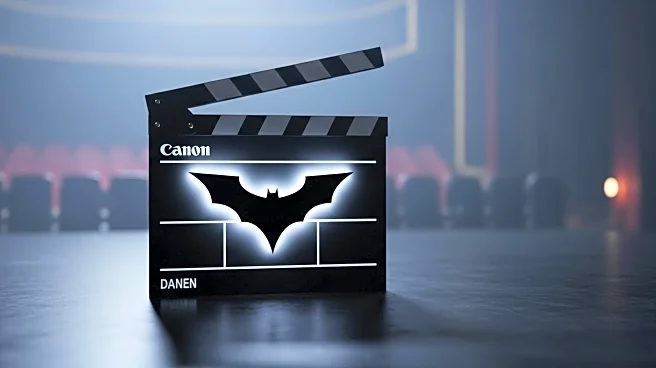What's Happening?
DC Studios has announced a delay in the release of 'The Batman Part II,' originally scheduled for October 3, 2025, now postponed to October 1, 2027. The delay is attributed to the Hollywood strikes and other production challenges. Despite the postponement, fans remain eager for updates, speculating on potential plot developments such as the introduction of Robin or villains like the Court of Owls or Mr. Freeze. DC boss James Gunn has defended director Matt Reeves, urging fans to allow him time to work on the script. The anticipation is fueled by leaks and rumors, with fans seeking any information about the film's progress.
Why It's Important?
The delay of 'The Batman Part II' highlights the impact of industry-wide disruptions, such as strikes, on major film productions. The film's postponement affects stakeholders including Warner Bros., DC Studios, and the broader superhero film market. The anticipation and speculation surrounding the film underscore the strong fan engagement and the pressure on studios to deliver timely updates. This situation reflects the growing influence of social media and leaks in shaping public expectations and the narrative around major entertainment projects.
What's Next?
As the new release date approaches, DC Studios is expected to provide more updates to manage fan expectations and maintain interest. The studio may release teasers or trailers to build anticipation and address fan speculation. The delay could also impact the scheduling of other DC Universe projects, potentially affecting the broader superhero film landscape. Stakeholders, including fans and industry analysts, will be watching closely for any changes in the film's production timeline or plot details.
Beyond the Headlines
The delay and fan speculation around 'The Batman Part II' illustrate the evolving relationship between fandoms and entertainment corporations. Fans' desire for constant updates reflects a shift towards more interactive and immediate engagement with media properties. This dynamic can lead to increased pressure on creators and studios to meet fan expectations, potentially influencing creative decisions and marketing strategies.









